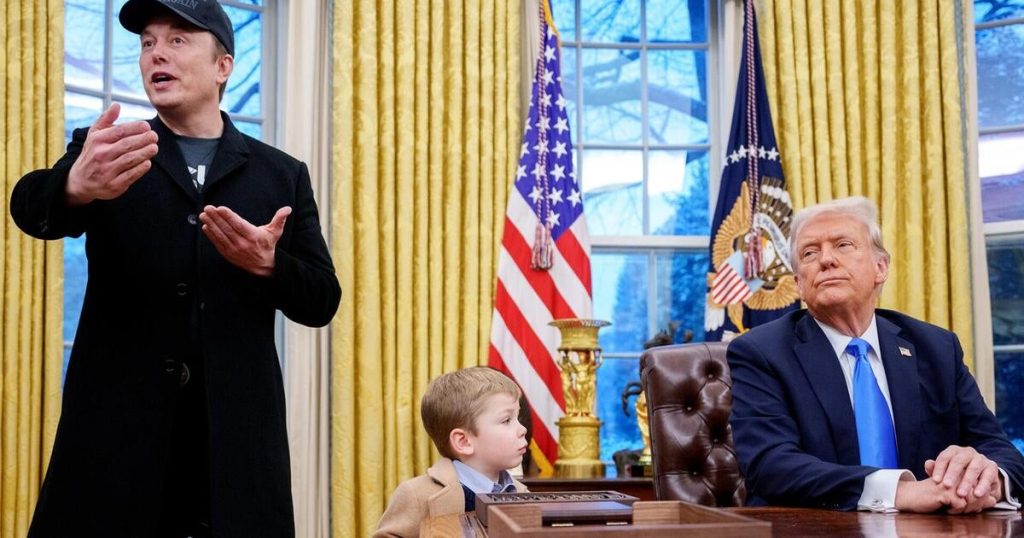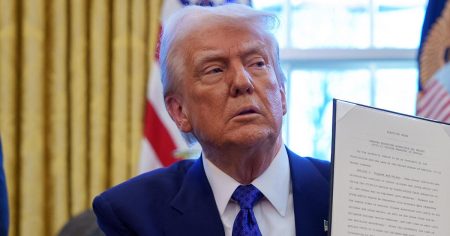Introduction to the Lawsuit Against DOGE and President Trump
A nonpartisan watchdog group, the Project on Government Oversight (POGO), has filed a lawsuit against President Trump, the Department of Government Efficiency (DOGE), and its administrator. The lawsuit challenges the claim that DOGE is shielded from public records requests under the Presidential Records Act (PRA). POGO argues that DOGE should instead be subject to the Federal Records Act (FRA), which requires federal agencies to preserve and make their records available to the public. This legal battle raises important questions about transparency, accountability, and the role of private entities in government decision-making.
DOGE, a controversial and influential entity within the Trump administration, has gained significant access to sensitive government data and records. POGO contends that because DOGE operates like a federal agency, with substantial authority to make sweeping changes across the federal government, its records should be accessible under the FRA. This is particularly important given the involvement of Elon Musk, the CEO of Tesla and SpaceX, who is alleged to have "functionally assumed leadership and the role of administrator" of DOGE. The lawsuit seeks to ensure that the actions and decisions of DOGE, as well as those of Musk, are transparent and subject to public scrutiny.
The Presidential Records Act vs. the Federal Records Act
At the heart of the lawsuit is the distinction between the Presidential Records Act (PRA) and the Federal Records Act (FRA). The PRA governs the records of the President and the Vice President, providing a framework for their management and preservation. Under the PRA, presidential records can be sealed for up to 12 years after a president leaves office, and the president has broad discretion to determine what constitutes a presidential record. This law came under scrutiny in the federal case involving Mr. Trump’s handling of classified records, highlighting the potential for abuse and the need for accountability.
In contrast, the Federal Records Act applies to federal agencies and requires them to create, maintain, and preserve records, making them available to the public under the Freedom of Information Act (FOIA). POGO argues that DOGE’s activities and decisions are more akin to those of a federal agency than a presidential office, and therefore should be subject to the FRA. This would ensure that DOGE’s records are preserved and made available to the public, rather than being shielded under the PRA.
The lawsuit also challenges the Trump administration’s claim that DOGE is subject to the PRA. Earlier this month, DOGE adviser Katie Miller claimed on social media that DOGE had been reorganized under the Executive Office of the President and was therefore subject to Presidential Records. However, POGO contends that this reorganization does not automatically make DOGE’s records immune from public access, particularly given its role in shaping federal policy and practices.
The Role of Watchdog Groups in Promoting Transparency
POGO, a nonpartisan organization dedicated to investigating public corruption, waste, and abuses of power, has long been a vocal advocate for government transparency. In filing this lawsuit, POGO seeks to ensure that the actions of DOGE and its leadership are subject to public scrutiny. The organization’s executive director, Danielle Brian, emphasized the importance of transparency in a news release, stating that because Elon Musk and DOGE "have been granted sweeping access to federal agencies," their records and activities should be "well preserved and made available to the public."
This lawsuit is part of a broader effort by watchdog groups to hold the government accountable for its actions. Another watchdog organization, American Oversight, has also sued DOGE after being denied access to its records. That lawsuit seeks all communications involving Elon Musk’s role in the termination of federal employees, further highlighting the need for transparency in DOGE’s operations.
The Implications of Shielding DOGE from Public Records Requests
The Trump administration’s attempt to shield DOGE’s records from public access has significant implications for government transparency and accountability. By claiming that DOGE is subject to the PRA, the administration is effectively hiding its actions and decisions from the public. This raises concerns about the potential for abuse of power, as well as the influence of private individuals like Elon Musk on federal policy and decision-making.
The lawsuit highlights the need for clear guidelines on how records created by entities like DOGE should be managed and preserved. If DOGE is allowed to operate outside the purview of the FRA, it could set a dangerous precedent for future administrations, enabling them to hide their activities from public scrutiny. This would undermine the principles of transparency and accountability that are central to a functioning democracy.
The Broader Significance of the Lawsuit
The lawsuit filed by POGO has significant implications beyond the specific case of DOGE. It raises important questions about the role of private individuals and entities in government decision-making, and the need for transparency in their activities. As government agencies increasingly rely on private sector expertise and partnerships, it is crucial to ensure that their actions remain subject to public oversight and accountability.
Moreover, this case highlights the ongoing challenges of ensuring transparency in the digital age. With government records increasingly being created and stored digitally, the need for robust record-keeping practices has never been more urgent. The lawsuit serves as a reminder of the importance of vigilance in ensuring that government records are preserved and made available to the public, rather than being shielded from scrutiny.
Conclusion: The Need for Transparency and Accountability
In conclusion, the lawsuit filed by POGO against President Trump, DOGE, and its administrator is a crucial step in ensuring transparency and accountability in government. By challenging the claim that DOGE’s records are shielded from public access under the PRA, POGO is seeking to ensure that the actions and decisions of this influential entity are subject to public scrutiny. This is particularly important given the involvement of Elon Musk, who has significant influence over federal policy and practices.
The outcome of this lawsuit will have far-reaching implications for government transparency and accountability. If successful, it will help to ensure that entities like DOGE are subject to the same transparency standards as federal agencies, preserving the public’s right to know about government actions. As the role of private entities in government continues to grow, lawsuits like this one will play a critical role in safeguarding the principles of transparency and accountability that are essential to a functioning democracy.















